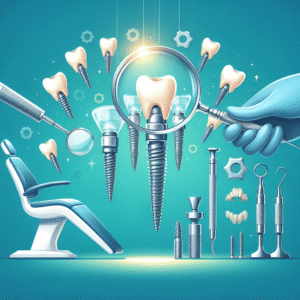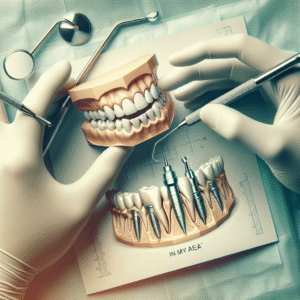All-on-4 Dental Implant Procedure Aftercare
The All-on-4 dental implant procedure is a revolutionary solution for patients seeking a permanent, stable, and natural-looking alternative to traditional dentures. This technique utilizes Full-Arch Dental Implants to restore an entire arch of teeth with just four strategically placed implants, often allowing for Teeth-in-a-Day / Same-Day Implants. While the procedure itself is transformative, proper aftercare is critical to ensuring long-term success, comfort, and functionality.
In this comprehensive guide, we’ll explore the essential steps for All-on-4 dental implant aftercare, including immediate post-operative care, dietary adjustments, oral hygiene practices, and long-term maintenance. We’ll also discuss related topics such as Implant-Supported Dentures, Zygomatic Implants, and the role of Bone Grafting for Dental Implants in ensuring a stable foundation for your new smile.
Immediate Post-Operative Care
1. Managing Discomfort and Swelling
After your All-on-4 procedure, it’s normal to experience some discomfort, swelling, and minor bleeding. Your dentist will likely prescribe pain medication or recommend over-the-counter anti-inflammatory drugs like ibuprofen to manage pain. Applying an ice pack to the affected area in 15-minute intervals can help reduce swelling during the first 48 hours.
2. Rest and Recovery
Avoid strenuous activities for at least 48–72 hours after surgery. Keeping your head elevated while resting can minimize swelling and promote healing.
3. Oral Hygiene in the First 24 Hours
- Do not rinse your mouth for the first 24 hours to avoid disturbing the surgical site.
- After the first day, gently rinse with a warm saltwater solution (½ teaspoon salt in 8 oz of water) several times daily to keep the area clean.
- Avoid brushing the surgical site directly for the first few days. Instead, use a soft-bristled toothbrush for the surrounding areas.
Dietary Adjustments After All-on-4 Implants
1. Soft Foods and Liquids
For the first few days, stick to a diet of soft, nutrient-rich foods such as:
- Smoothies and protein shakes
- Mashed potatoes and soups
- Yogurt and pudding
- Scrambled eggs and oatmeal
Avoid hot, spicy, or acidic foods that could irritate the surgical site.
2. Gradual Transition to Solid Foods
After the initial healing phase (about 1–2 weeks), you can slowly reintroduce firmer foods. However, avoid excessively hard, sticky, or crunchy foods (e.g., nuts, popcorn, caramel) for at least 6–8 weeks to prevent implant strain.
3. Staying Hydrated
Drink plenty of water to stay hydrated and promote healing. Avoid alcohol and caffeine for the first few days, as they can slow recovery.
Long-Term Oral Hygiene for Implant-Supported Dentures
1. Daily Cleaning Routine
- Brush gently twice daily with a soft-bristled toothbrush and non-abrasive toothpaste.
- Use an interdental brush or water flosser to clean around the implants and under the prosthetic arch.
- Antimicrobial mouthwash can help reduce bacteria buildup.
2. Professional Maintenance
- Schedule regular dental check-ups (every 6 months) for professional cleanings and implant inspections.
- Your dentist may recommend specialized tools to maintain Implant-Supported Dentures without damaging the prosthetic or abutments.
Potential Complications and How to Avoid Them
1. Infection Prevention
- Follow all prescribed antibiotic regimens.
- Avoid smoking, as it significantly increases the risk of implant failure.
2. Monitoring for Implant Stability
If you notice unusual pain, looseness, or gum recession around your Full-Arch Dental Implants, contact your dentist immediately. Early intervention can prevent complications.
3. Addressing Bone Loss
Patients with pre-existing bone loss may require Bone Grafting for Dental Implants before the All-on-4 procedure. Even after surgery, maintaining good oral health helps preserve jawbone density.
Special Considerations for Zygomatic Implants
For patients with severe bone loss in the upper jaw, Zygomatic Implants may be used instead of traditional implants. These anchor into the cheekbone (zygoma) for added stability. Aftercare is similar but may involve:
- More frequent follow-ups to ensure proper integration.
- Avoiding excessive pressure on the upper arch during healing.
Final Thoughts
Proper All-on-4 dental implant aftercare is essential for ensuring the longevity and success of your new smile. By following these guidelines—maintaining excellent oral hygiene, adhering to dietary recommendations, and attending regular dental visits—you can enjoy the benefits of Teeth-in-a-Day / Same-Day Implants for years to come.
Whether you’ve opted for traditional Full-Arch Dental Implants, Implant-Supported Dentures, or Zygomatic Implants, a commitment to post-operative care will help you achieve optimal results. If you have any concerns during recovery, always consult your dental professional for personalized advice.
Investing in your oral health today ensures a confident, functional smile tomorrow.
Frequently Asked Questions
FAQ: All-on-4 Dental Implant Procedure Aftercare
-
How long does it take to recover after an All-on-4 dental implant procedure?
Recovery typically takes a few days to a week for initial healing, but full osseointegration (bone fusion) may take 3-6 months. Follow your dentist’s post-op instructions to ensure proper healing. -
What foods should I avoid after the All-on-4 procedure?
Stick to soft foods like mashed potatoes, yogurt, and soups for the first few weeks. Avoid hard, crunchy, or sticky foods that could disrupt healing or damage the implants. -
How should I clean and care for my All-on-4 implants?
Use a soft-bristle toothbrush and non-abrasive toothpaste to gently clean your implants. Your dentist may also recommend a water flosser or antimicrobial rinse to maintain oral hygiene. -
When can I resume normal activities after the procedure?
Light activities can usually resume within 1-2 days, but avoid strenuous exercise or heavy lifting for at least a week to prevent bleeding or swelling. Always consult your dentist for personalized advice.




